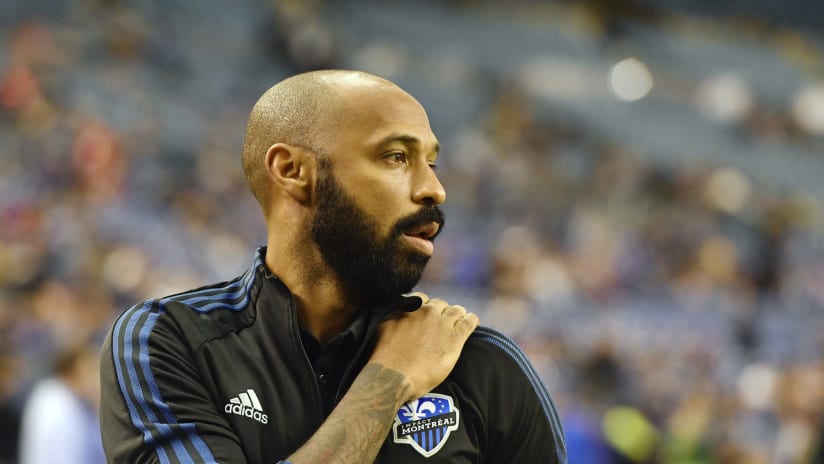CF Montréal's recruitment policy this winter has been a globetrotting affair. As consumed on the virtual stage, of course, like most things over the past 12 months.
Montréal started in MLS with trades for Djordje Mihailovic, Kamal Miller and Kiki Struna, then have acquired players from Belgium (Zorhan Bassong), Nigeria (Sunusi Ibrahim), South Korea (Bjorn Johnsen), Argentina (Joaquin Torres) and Egypt (Ahmed Hamdi).
All in all, Montreal have made eight additions thus far while nine players from last year's playoff squad will not return.
“The market is still open so you never know what may happen, but honestly, I think the major part of our transfers is already done," sporting director Olivier Renard told media on a virtual press conference Monday.
A clear goal for the club was to create more competition for minutes among the squad, something Renard believes they've done well.
Another goal was to give Thierry Henry plenty of options both in quality and for tactical flexibility. Particularly in attack, Henry has myriad different combinations to choose from. Ibrahim and Johnsen, who is a Norwegian international, join incumbent center forward Mason Toye, while Romell Quioto proved he is as adept at playing through the center as he is playing wide.
In addition to his goal scoring record at various stops in his nomadic career, Johnsen gives Henry a traditional target man. The 6-foot-4 forward is known for his aerial prowess.
“He was a profile we had been missing," Renard said. "He’s strong in the air— I know this isn’t the philosophy of Thierry, he prefers to play football, but when you need to play the ball long, you need a striker who can keep the ball. It’s so important for the team, for the coach to have someone like this.”
Henry was fluid with his tactics in his first season in charge of Montréal. He began in the preseason with a 4-3-3 formation, but quickly shifted to various five at the back formations once the season began.
“It’s not about just the strikers," Renard said. "We have more possibilities to change defensively, like three players who can play left back. The coach has the possibility to play three at the back. The diversity of the players, the coach is happy with.”
Renard took over in Montréal towards the end of the 2019 season. This is his second offseason steering the ship as the squad continues to evolve.
"I’m very confident and happy with the players we signed," Renard said. "These players weren’t our third or fourth choices. If you’re signing your 10th choice just to sign a player, it’s a problem. When I arrived, the dressing room was older. I’ve changed many things. It’s not that I wanted to kick players out, but when you have the chance to make change, you have to do it.”














